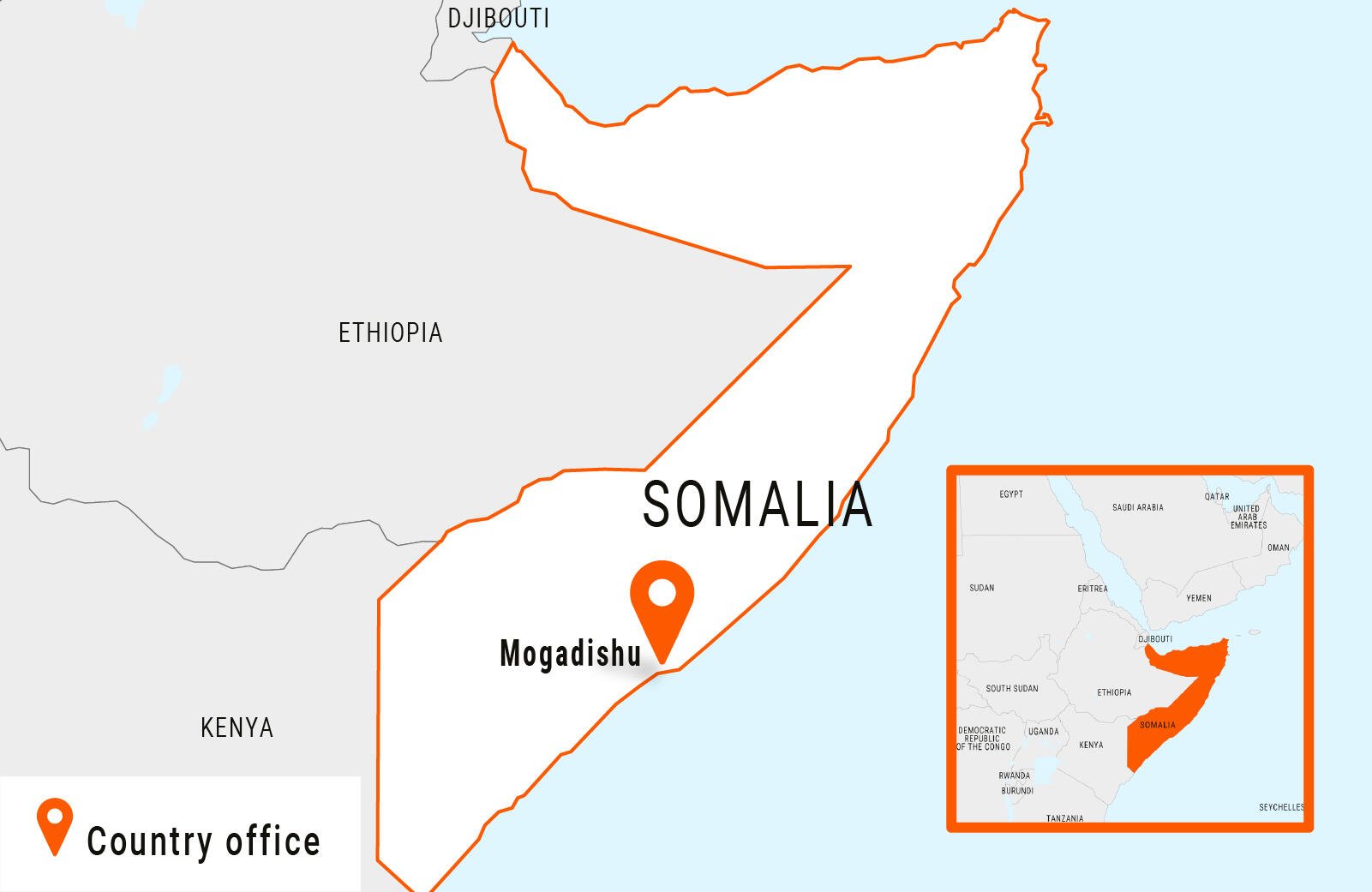The Norwegian Refugee Council (NRC) is working across the country, especially in hard-to-reach areas – helping families get the food, water, shelter and support they so urgently need.
What’s happening in Somalia?
The civil war in Somalia was one of Africa’s longest running conflicts. It has shattered lives, destroyed infrastructure and displaced families across the region.
At the same time, the country is facing more frequent and longer-lasting droughts. These are becoming more severe due to climate change, leading to the desertification of this once-fertile agricultural land. Lack of rainfall means that crops can’t grow, harvests fail and livestock perish. Malnutrition is rife, people are starving and famine is an ongoing threat.
Faced with such a bleak situation, many families flee their homes in desperation – hoping to make better lives for themselves elsewhere in Somalia. However, their efforts are often unsuccessful, and they end up living in even more precarious circumstances.
Our response
We’re working with our partners in the following areas:
- Water, sanitation and hygiene – providing handwashing stations and proper sanitation facilities, promoting good hygiene and delivering hygiene kits to families in camps.
- Shelter and settlements – distributing emergency shelter kits, constructing more permanent homes and training people in carpentry and building maintenance.
- Livelihoods and food security – providing cash assistance and start-up grants, as well as seeds, tools and small livestock.
- Education – distributing teaching materials, providing catch-up classes and life skills training, and building temporary learning centres in camps.
- Protection from violence – managing safety issues in camps and host communities, and responding to emergencies like flooding and fires.
- Information, counselling and legal assistance – helping people obtain vital legal documentation and claim their housing, land and property rights.
Our operations
NRC office established: 2004
Areas of operation: Mogadishu, Kismayo, Baidoa, Hargeisa, Burao, Jowhar, Bossaso, Qardho, Galkayo, Garowe, Dhusamareb, Dollow, Luuq, Wajid, Hudur, Bardere
Country Director: Mohamed Abdi
Contact: SO.main@nrc.no

Our impact
In 2024, we assisted 626,815 people through our programmes in Somalia:
-
25,871Education
-
116,696Livelihoods and food security
-
36,472Shelter and settlements
-
22,816Protection from violence
-
122,469Information, counselling and legal assistance
-
200,776Water, sanitation and hygiene
-
150,386other NRC assistance
Note: some people received more than one type of assistance.








